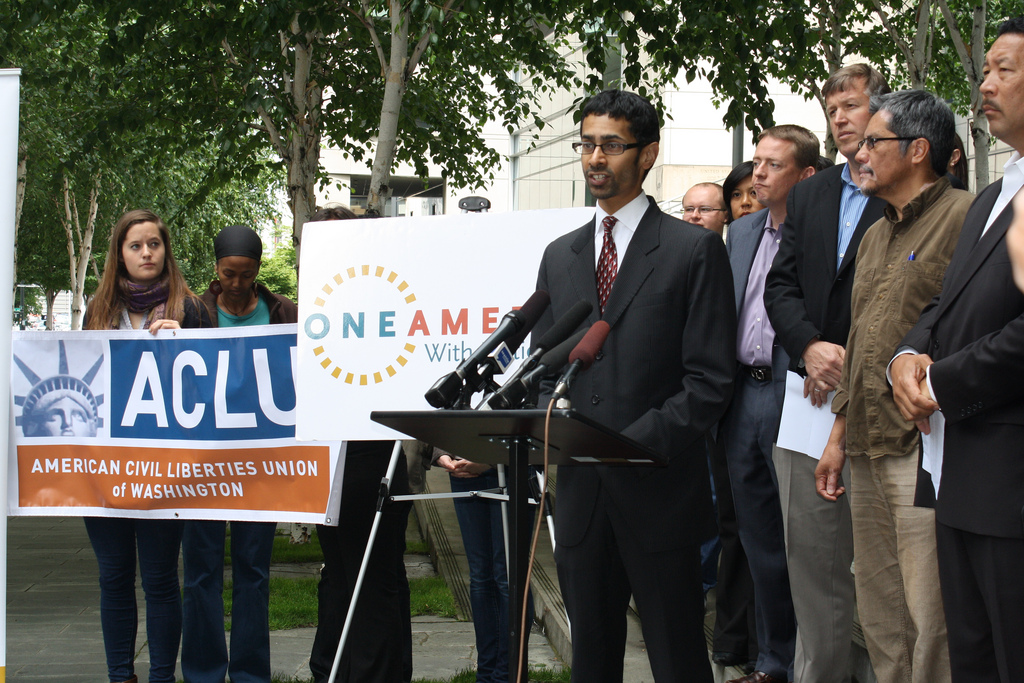
Photo credit: One America
(The ACLU-WA’s Shankar Narayan delivered this statement at a press conference today responding to the U.S. Supreme Court’s ruling on Arizona’s racial profiling law, SB 10170. The event was held on the steps of the federal courthouse in Seattle, with speakers from the ACLU, One America, the NW Immigrant Rights Project, and several elected officials.)
Laws like SB 1070 fly in the face of those freedoms and the core values of all Washingtonians – in particular, that everyone should be free from unwarranted intrusions by police and that everyone should have due process, fairness, and equality.
The Supreme Court’s decision rejected the notion that the states make immigration law. Arizona wanted a green light for its law but instead got three red lights and one major caution. The court remanded the law’s “Show me your papers” Section 2(B) to the U.S. 9th Circuit Court of Appeals for further consideration. The court wants to know how it will be implemented in practice.
We know that you simply cannot enforce a law like SB 1070’s Section 2(B) without engaging in racial profiling, because people will inevitably be targeted based on how they look or sound. Laws like this harm citizens and non-citizens alike. And beyond the U.S. Constitution, we also have the protections of our Washington State Constitution, which has always been interpreted as being even more protective of individual rights and liberties than the federal constitution.
While the court's upholding of the "Show me your papers" provision of the law is troubling, it is important to remember that today’s decision does not represent the end of either the legal battles over those values, or of the wider struggles to uphold them. The case decided by the Supreme Court today is a narrow ruling about federal preemption – and even that isn’t the end of the story. We will continue to fight it on remand and in many other lawsuits in state courts. Another lawsuit, called Friendly House, brought by the ACLU and its allies, also raises the issues of racial profiling by law enforcement, violation of the equal protection guarantee, and unreasonable seizures. That case and other challenges at the state court level that will become possible once the law is actually implemented.
We should also remember that there’s a big difference between what’s constitutionally permissible and what’s good public policy – and laws like SB 1070 are bad policy. They are divisive, open the door to racial profiling, and are bad for our society and the economy. Law enforcement officers across the country have spoken out against such laws because they undermine public safety rather than promote it. That is why community leaders in Washington have always been vigilant to ensure that they never pass here. Indeed, such measures have never gotten traction in our state, whether through the legislature or via initiative.
We intend to keep it that way. We will continue to be vigilant and fight back in rejecting laws like SB 1070 and all that they stand for – by organizing and advocating with our local, state, and federal elected officials. Already, the tide is turning across the country to reject such laws, and some of the states that have enacted them have paid a heavy economic price. And our community leaders and everyone in Washington who values due process, fairness, and equality – will turn out in force in the fall to vote for candidates who understand and support those beliefs. We cannot and will not allow Washington to go down Arizona’s




